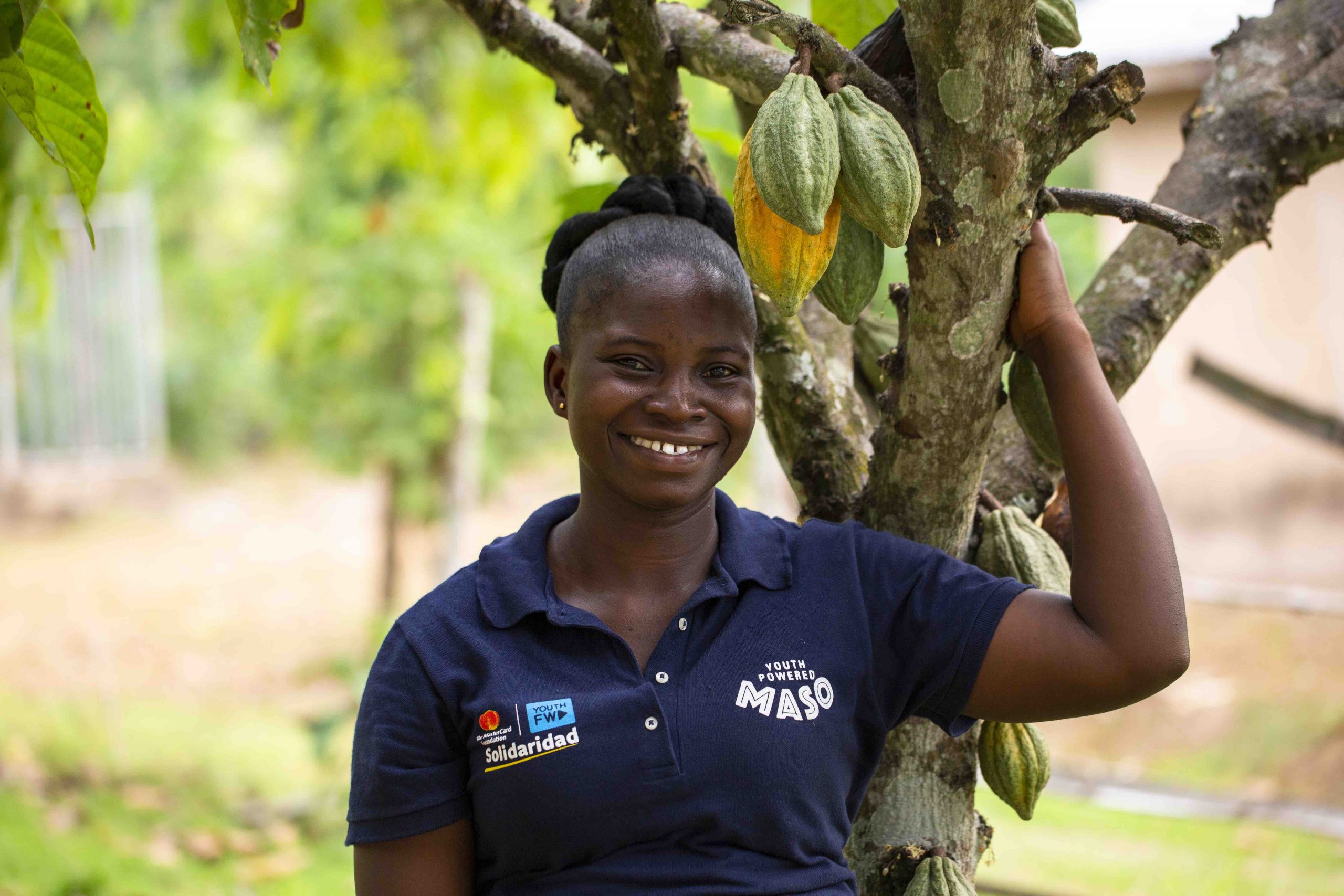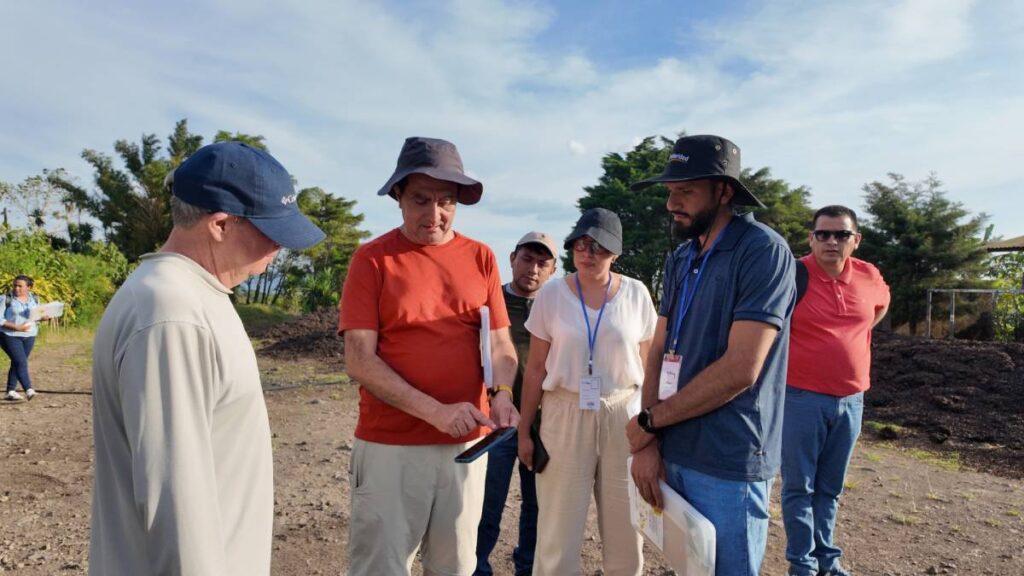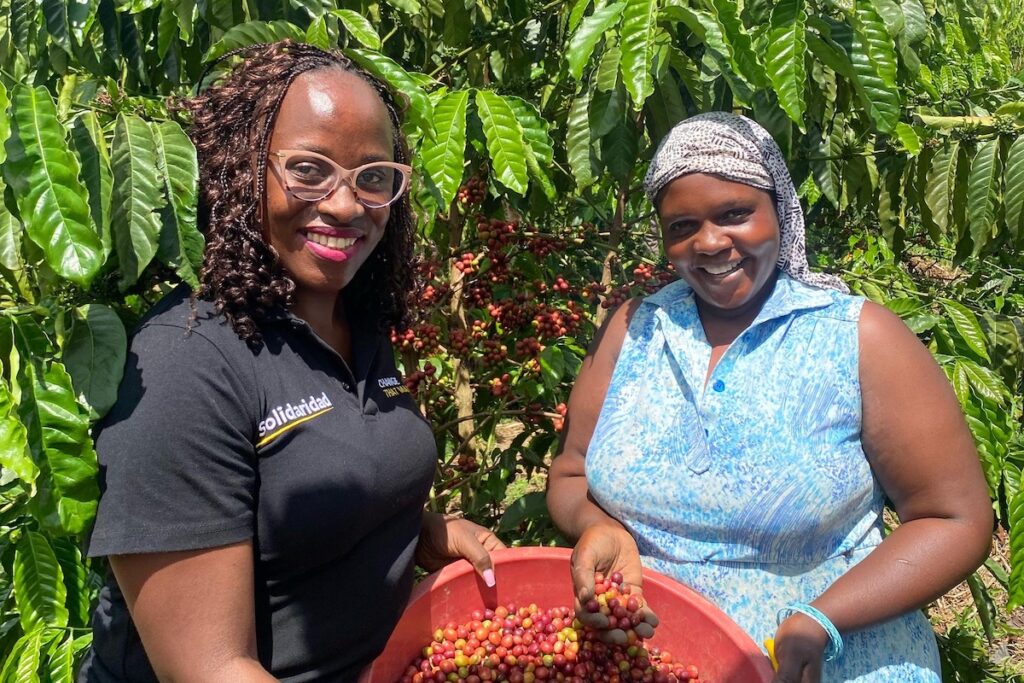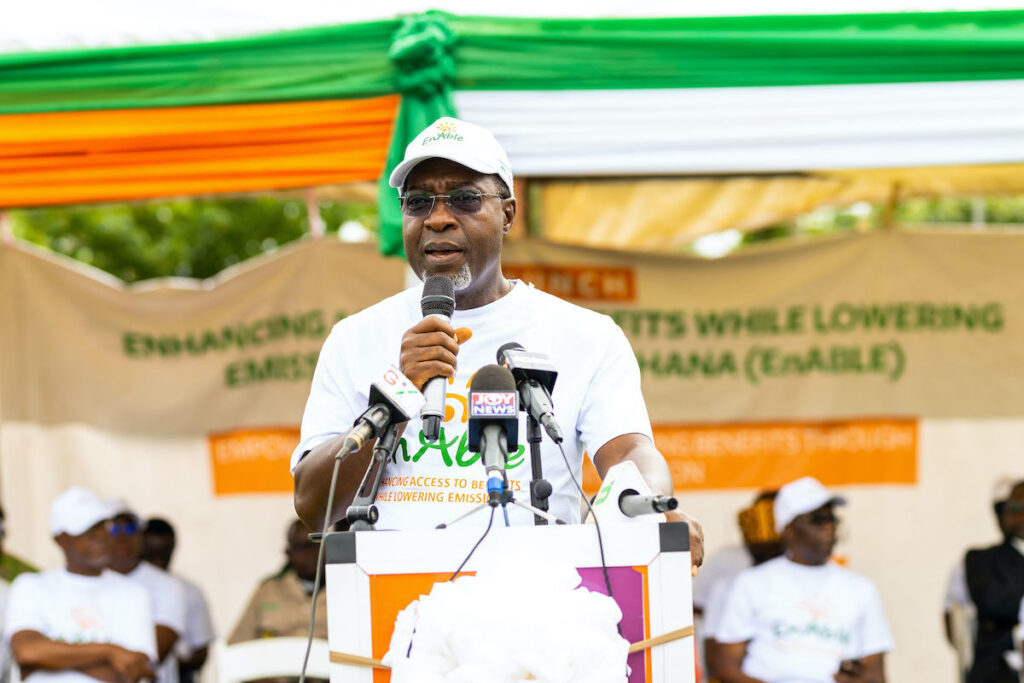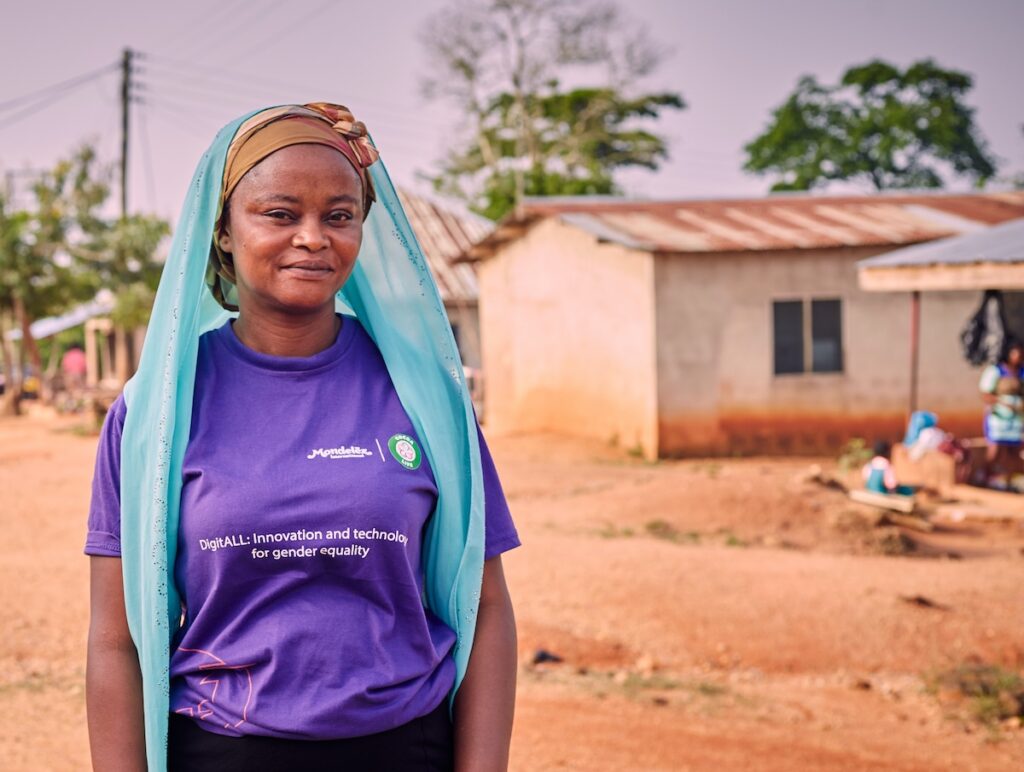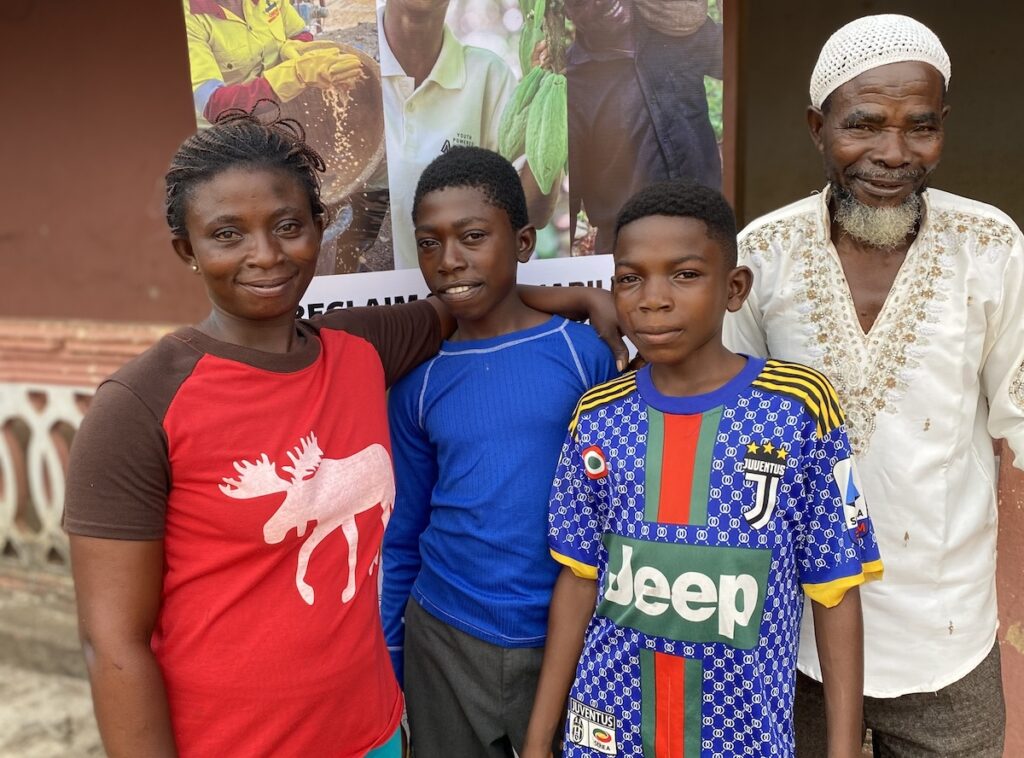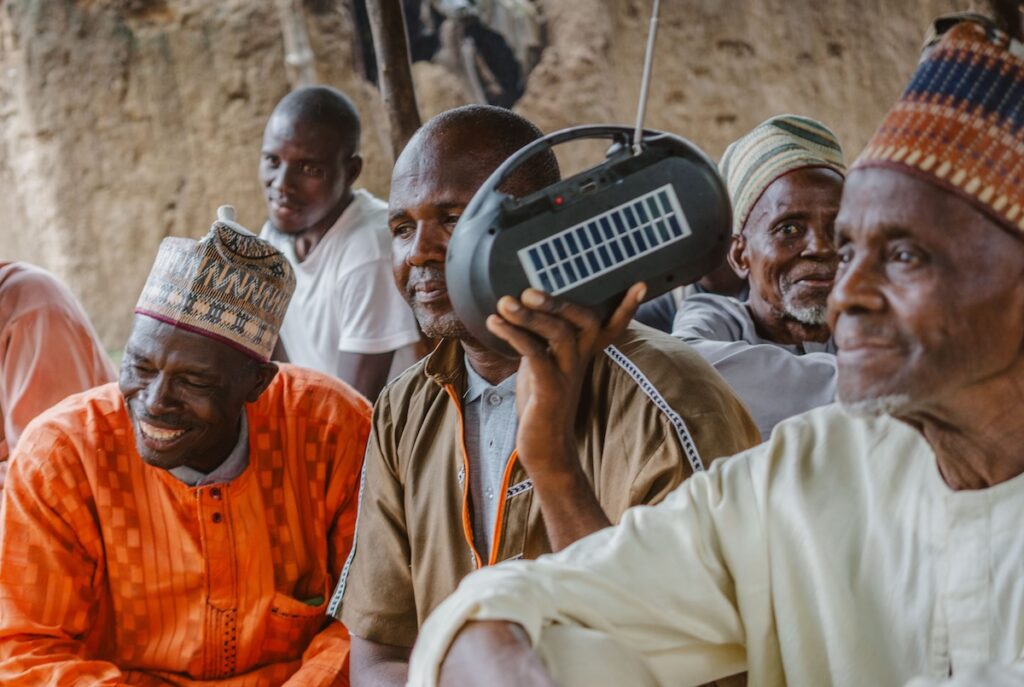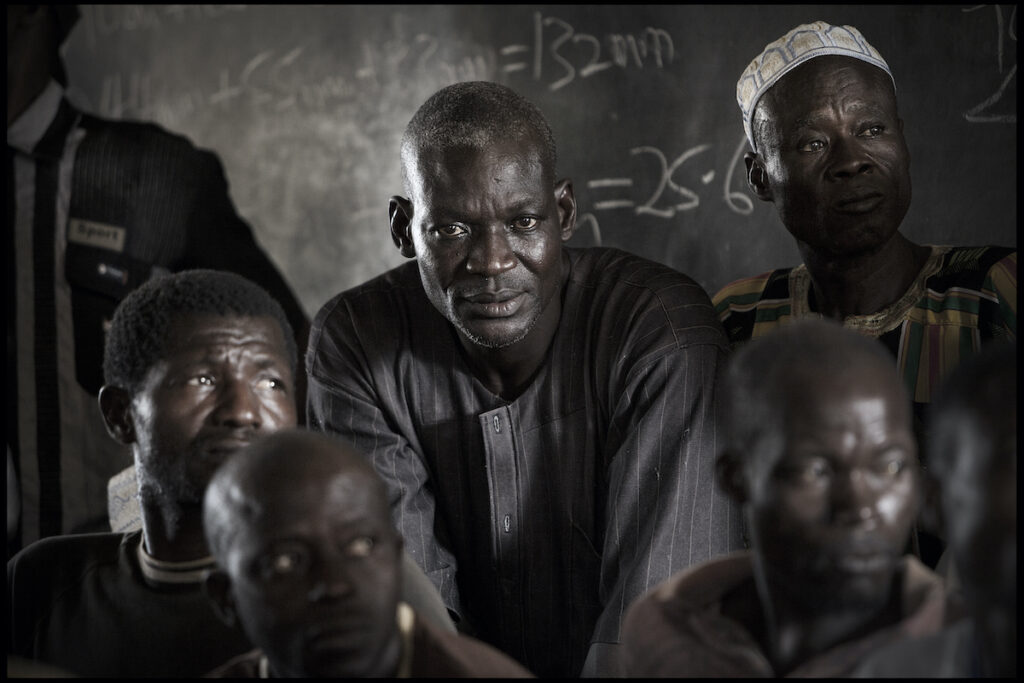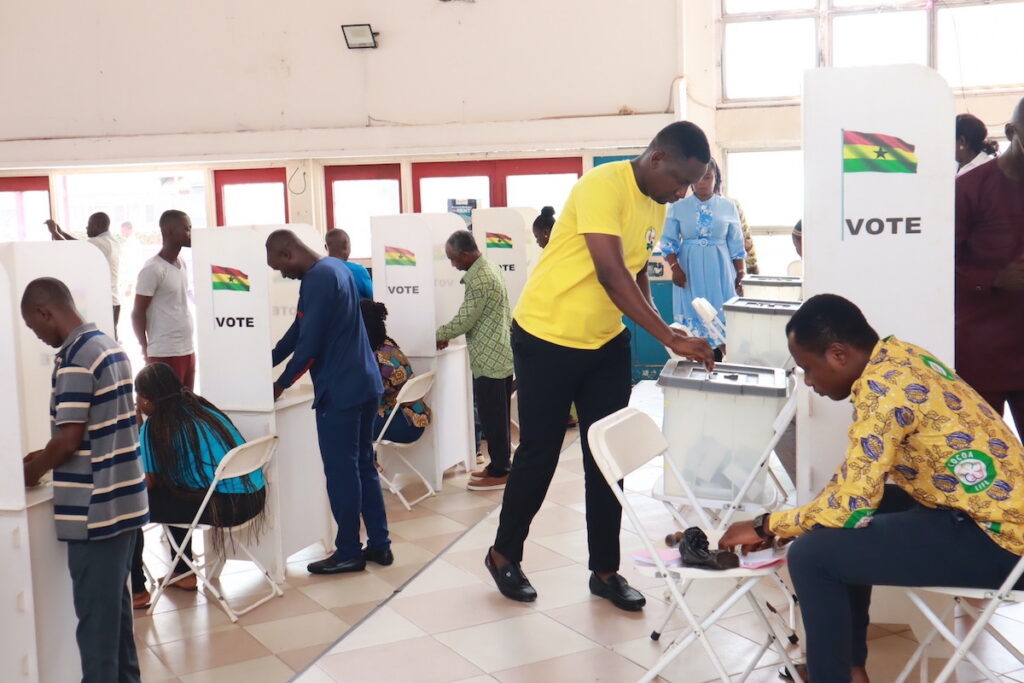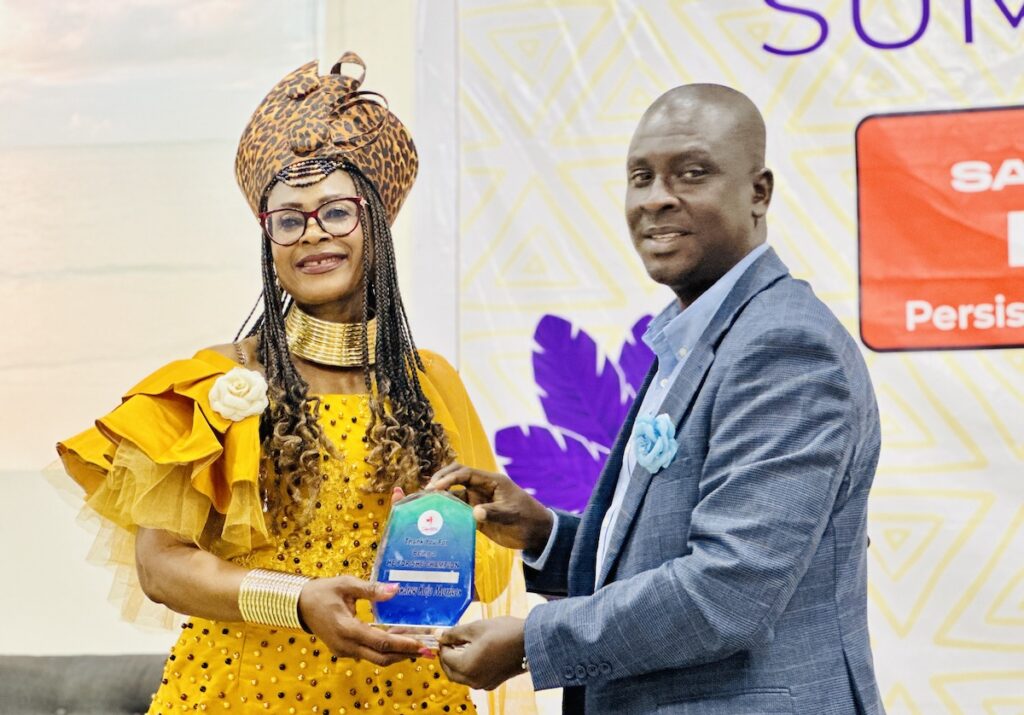Smallholder farmers produce 95% of all cocoa, usually on plots between 1-3 hectares. Many of these smallholders live in West Africa, which produces 70% of the world’s cocoa. Millions of farmers depend on cocoa to make a living, only to be faced with unproductive fields, being unable to turn their product into sustenance.
Searching for opportunity
Mawuse Hotor is the daughter of cocoa farmers in Ghana. Growing up in Akome Gbota, the Volta Region, poverty was a reality for many families in the heavily agricultural community. Although her own family at times struggled to make ends meet, they worked hard to ensure that Mawuse could complete her education. Like so many other young people in her country, Mawuse moved to the big city in search of better economic prospects. But life was not easy there and she missed her family a lot.
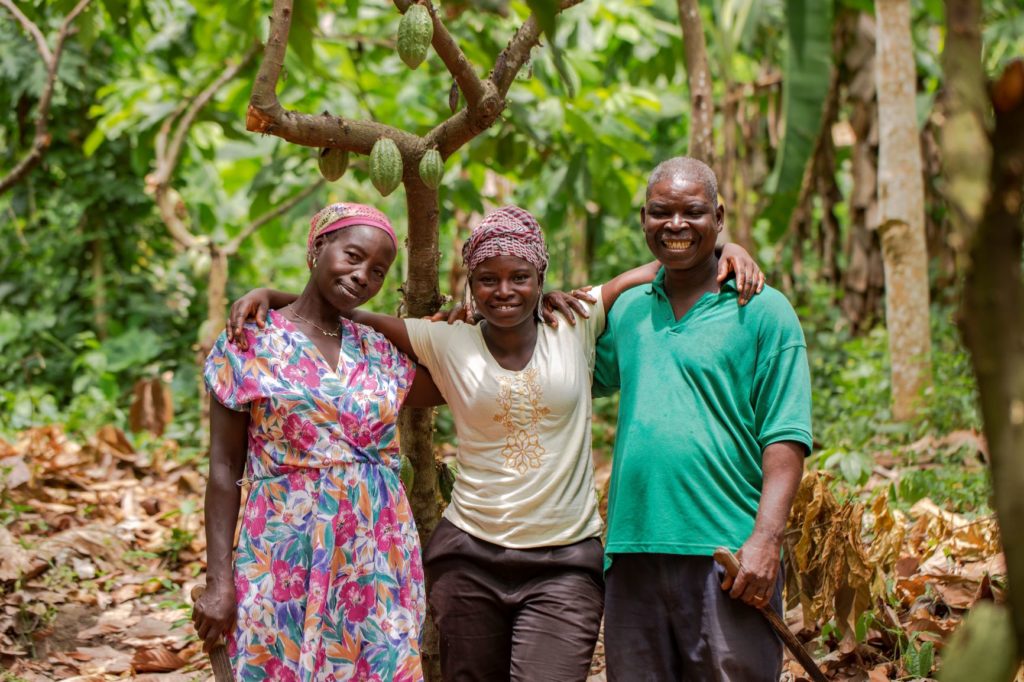
Launch of RECLAIM SUSTAINABILITY! programme for inclusive and sustainable value chains
Farming is my first love.
Mawuse Hotor
Despite her connection to agriculture, Mawuse hadn’t imagined she would return home to launch her own career as a cocoa farmer. It was her mother, Mary Ahotor, who told Mawuse about Solidaridad’s MASO cocoa training programme, and convinced her to give it a shot. She hasn’t looked back since.
The MASO Cocoa Academy, in Assin Nkukuasa, brought together youth between 18 and 30 years of age to learn about cocoa agronomy, as well as coursework on life skills, business skills, and leadership. Many students attended the biweekly class accompanied by their small children, or amidst other pressing responsibilities of their daily lives. But the passion for the programme was palpable. Using model plots, students studied techniques such as pruning, fertilization best practices, intercropping, use of shade trees, and many others.
The power of access
Farmers with knowledge and skills – and access to credit and fertilizer – are three times as productive as their colleagues. This is not only good for farmers; it means that companies can also rely on a steady supply of good cocoa. Training farmers has resulted in a 13% increase in income in Ghana, translating to greater household security, with more money being spent on food, clothing, and education.
The MASO Cocoa Academy was the launching point for Mawuse’s cocoa farm. She was able to acquire land and cultivate 2.5 acres of cocoa, quickly putting into practice what she had learned. In addition to the cocoa, Mawuse used intercropping to make the most of her land and quickly began earning revenue from the food crops.
The future of cocoa farming lies in the hands of the youth.
Mawuse Hotor

The future is bright
Through the programme, Mawuse also honed her leadership and soft skills, and traveled outside Ghana to share her experiences. She participated in a panel and speech in the Netherlands during Solidaridad’s 50th Anniversary event in 2019, and she is a member of the Youth Forward Initiative National Steering Committee representing Youth in Agriculture. As Mawuse continues her farming business, she is now also pursuing her dream of becoming a teacher.
“I can see that my confidence level has improved greatly and I have a better self-esteem. I am now respected in my family because I am able to contribute financially and also support other members of my family. Also in my community, my status has improved because not many women have ventured into cocoa farming. I am a better person now than I was 3 years ago.”
Indeed, Mawuse’s story provides much inspiration to reinforce the efforts towards women empowerment and equality as key contributors to sustainable development.

